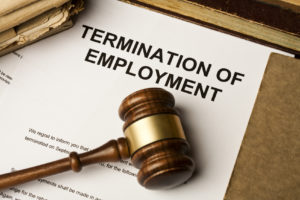 One of the most common types of questions we hear people ask over over and is this:
One of the most common types of questions we hear people ask over over and is this:
Can I be fired while on medical leave / disability leave / after being injured at work or outside of work / if I am pregnant?
The answer to this question has to be divided into two parts:
(a) First, if you an at-will employee, like most other workers in a private sector, you can be terminated at any time for any reason or no reason with or without notice. At the same time, you can also quit your job at any time with or without reason and with or without notice. This means that in an at-will relationship, an employer can also choose to terminate you regardless of your disabilities, injuries, pregnancies or anything else. Just like no one can force you to work for anyone, no one can force your employer to continue employing you against their will. Whether a termination would would legal or not, the employer can choose to violate the law and then deal with the consequences later. This brings us to the second part of the answer –
(b) The more proper question is whether terminating an employee in one of the above situations would be lawful, and if not – whether there a valid wrongful termination case can be brought. The answer to this question depends on whether the employer has a legitimate reason for termination that’s unrelated to an employee’s disability, injury, pregnancy, etc… or whether there is sufficient evidence to suggest that the real reason for termination is in fact discriminatory or a result of retaliation and the reason for termination actually given by the employer, i.e. lay-off, or insubordination, poor performance, etc., is just an excuse. Determining this requires looking at the entire picture of an employee’s employment and the specific circumstances of his termination. However, here are two “extreme” examples to illustrate this point:
(i) John is 54 year old, and he is being laid off from a plant along with 20 other workers, some of whom are younger while other are about the same age. The company-employer is known to have financial difficulties. John has no actual reason to believe that his age has anything to do with his termination, because his manager never mentioned directly or indirectly that his age is a problem. This fact patters suggests that there is no evidence to make a wrongful termination case because there is no evidence to suggest that age had anything to do with John’s termination.
compare this to –
(ii) Mike is a 52 year-old employee. He was the only one “laid off” after his manager told him several times that it might be time to retire, suggested that the company needs “fresh blood”, and also posted his position as vacant on Indeed or Monster.com a few days after Mike was terminated. In addition, Mike’s managers and / or co-workers use to call him ageist names, such as “dad”. Obviously, in this situation there is ample evidence of age discrimination and this is potential a strong case, while lay-off is just used an excuse to get rid of the older employee for an illegal reason.
The same type of analysis would apply to any other situation whether the employee is terminated while being in some type of protected category, such having a disability, pregnancy, requesting FMLA leave or accommodation, etc.